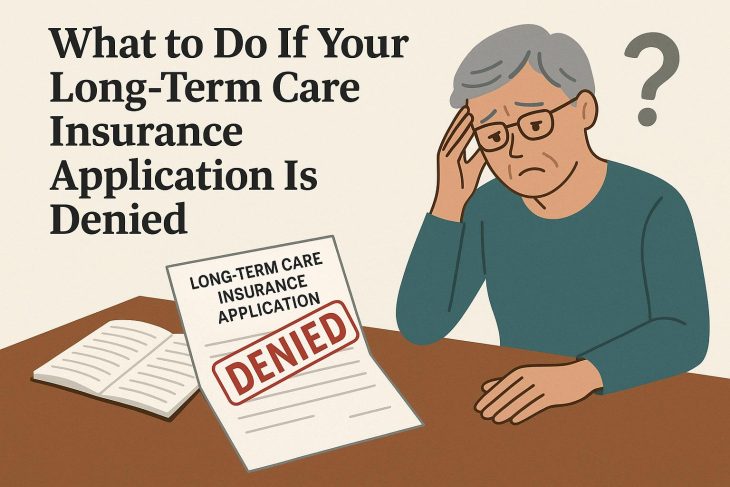
Understanding the Reasons for Denial
When confronted with a denied long-term care insurance application, the initial and most crucial step is to comprehend the underlying reason for the denial. Insurance providers generally specify a clear rationale when they choose to reject an application. This rejection may stem from a recent medical diagnosis, pre-existing medical conditions, or the level of risk associated with your current health profile. It is critical to thoroughly inspect the written notice or any communication received from the insurer. By doing so, you can accurately identify the specific reasons that led to the denial of your application.
Request Further Clarification
Sometimes, the reasons for denial might seem vague or lacking in detail. In such cases, it is advisable to reach out directly to the insurance provider for a more thorough clarification. Initiate contact with their customer service or the underwriting department to discuss their findings in detail. By gaining a precise understanding of the factors contributing to your application’s rejection, you can better evaluate your subsequent steps.
Review Your Medical Records
An essential part of addressing a denied application involves reviewing the medical records and information provided during the application process. It’s vital to ensure these records are accurate and updated. Denial could sometimes be the result of errors in your medical records or an incomplete medical history. Request a copy of your medical records from your healthcare providers. Carefully review and verify the information that was submitted to the insurance company. If any discrepancies are found, work towards resolving them before reapplying or considering an appeal.
Consider Other Insurance Options
If your long-term care insurance application is denied, exploring alternative insurance options is a prudent step. Different insurance companies evaluate risk and health factors distinctively, which means that a denial from one company does not necessarily imply a rejection from others. Research various insurers and their underwriting criteria to identify those whose guidelines may be more favorable considering your specific health situation. Consider submitting applications to these insurers.
File an Appeal or Request a Reconsideration
If you genuinely believe that your application was unfairly denied, you have the right to appeal the decision. Insurance companies typically have procedures for an appeal, which usually involve submitting additional documentation or evidence to support your case. In preparation, gather necessary documents, such as letters from healthcare providers, to reinforce your appeal. Adhere strictly to the insurer’s specific guidelines and timelines throughout this process to maximize your chances of a successful appeal.
Engage a Professional
In some scenarios, consulting with a professional can be invaluable. Consider the assistance of an insurance broker or an attorney specializing in insurance law. These professionals can offer expert insights into the appeals process, aiding you in gathering the appropriate documentation and evidence necessary to substantiate your case. The National Association of Insurance Commissioners (NAIC) is a helpful resource for locating accredited insurance professionals and understanding your consumer rights.
Maintain Health and Reapply
If the outcome of the appeal process is not favorable, refocus on maintaining or enhancing your health. Adopting and maintaining a healthy lifestyle can positively influence your prospects for insurance eligibility in the future. After a wait period of one or two years, you might consider reapplying for long-term care insurance, particularly if there is a noticeable improvement in your health or if there have been updates to the insurers’ underwriting criteria.
Explore Alternative Financial Planning
Should securing long-term care insurance continue to pose challenges, it is worth exploring alternative financial planning strategies. You might consider options such as establishing a health savings account (HSA), investing in annuities, or looking into other forms of insurance, like life insurance with long-term care riders. These options may provide benefits that better align with your personal and financial needs.
Understanding and navigating the intricacies following a denied application are crucial for making well-informed decisions regarding future attempts or alternative planning strategies. Every step you take should be approached with diligent consideration and thorough research, as this will enable you to make informed decisions that align with your long-term healthcare needs and financial security.
This article was last updated on: September 16, 2025
